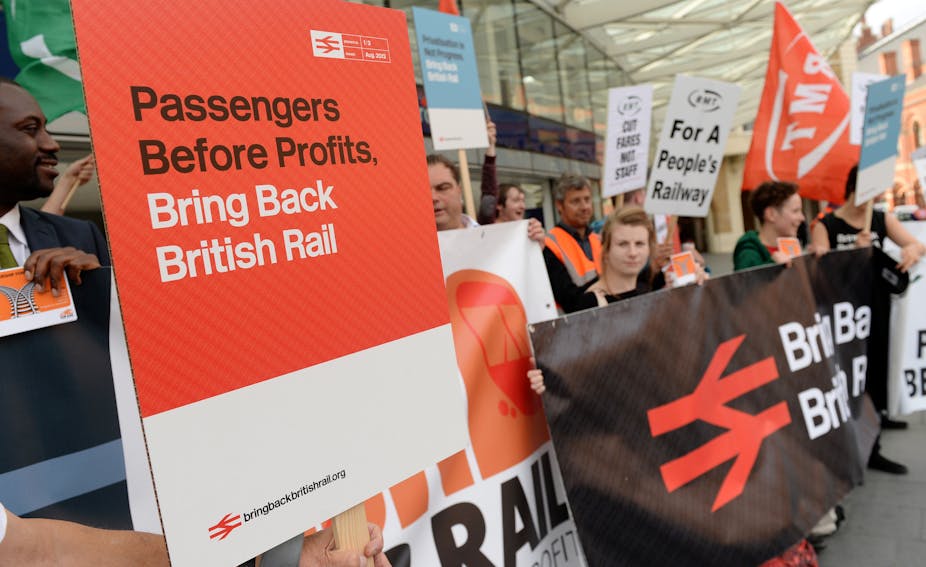The east coast main line is to be reprivatised, and the unions aren’t happy. The three rail unions, RMT, Aslef and the TSSA have asked for a judicial review into the process, and have also questioned the way extensions to the Thameslink and Great Northern franchises are being awarded.
The basis for the review request is that, following the West Coast franchise fiasco, the Department for Transport’s procedures for awarding train contracts are seriously flawed and need to be reviewed. That said, there can be little doubt that the unions’ stand is ideologically driven, just as the government’s is too. The next election is getting closer, after all. So what are the arguments?
Central to the debate is what has happened to the franchise over the past decade or so. Two supposedly “successful” operators have found it necessary to “hand in the keys”. These were GNER and then in 2009, National Express. Both had to dump their franchise contracts as they were not generating the projected revenues.
For the past five years the east coast franchise has been run very successfully by Directly Operated Railways, essentially a nationalised operator. Its success is measured in terms of a big increase in passenger numbers, but more significantly, handing back over £600m in premium payments – profits, in other words – to the treasury.
Regular users like me have been impressed with the cheap advance fares, off-peak especially, the improved punctuality and above all the positive attitude of the DOR staff. It has succeeded despite competition from two of the rare breed of “open access” train operators, Hull Trains and Grand Central Trains, who purchase slots directly without a franchising agreement.
To many, including of course the trade unions, our rail network should never have privatised in the first place. After all, Margaret Thatcher and her transport secretary Nick Ridley, both arch privatisers, said it was too complex an industry to hand over to the private sector. They also believed that private firms would not want to be in a position of having to rely heavily on government subsidies.
To an economist, like myself, this view is not surprising since a railway line is a “natural monopoly”. It makes little sense to have duplicated routes, and the high fixed costs make rail lines very difficult to run at a profit even on heavily used routes like the east coast main line. Subsidy is essential to retain services. Ideologically, this was consistently the view of the late Bob Crow, RMT’s former general secretary, and others.
Yet privatisation has produced many benefits for the rail network. We have seen considerable investment from operators such as Virgin Rail as well as from Network Rail, the “not for profits” organisation which owns and operates the tracks and other infrastructure. Customer service is now on a par with most big retailers, a passenger charter is well established and some new services have come about. Many fares though, especially for commuters and peak walk-on travellers, are eye-watering, a very common complaint.
So, where does this leave us? I suppose you could say we are still on the platform, waiting for the green light to see if the judicial review will be accepted. If so, it could mean that the three preferred bidders, Virgin/Stagecoach, First Group and Keolis/Eurostar could end up being in a position where their attempt to win the franchise is, to use a well-known rail term, “delayed”.

